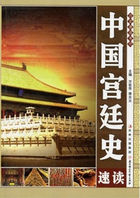When Mannering returned to England, his first object had been to place his daughter in a seminary for female education, of established character. Not, however, finding her progress in the accomplishments which he wished her to acquire so rapid as his impatience expected, he had withdrawn Miss Mannering from the school at the end of the first quarter. So she had only time to form an eternal friendship with Miss Matilda Marchmont, a young lady about her own age, which was nearly eighteen. To her faithful eye were addressed those formidable quires which issued forth from Mervyn Hall, on the wings of the post, while Miss Mannering was a guest there. The perusal of a few short extracts from these may be necessary to render our story intelligible.
First Extract"Alas! my dearest Matilda, what a tale is mine to tell! Misfortune from the cradle has set her seal upon your unhappy friend. That we should be severed for so slight a cause--an ungrammatical phrase in my Italian exercise, and three false notes in one of Paesiello's sonatas! But it is a part of my father's character, of whom it is impossible to say, whether I love, admire, or fear him the most.
His success in life and in war-his habit of making every obstacle yield before the energy of his exertions, even where they seemed insurmountable-all these have given a hasty and peremptory cast to his character, which can neither endure contradiction, nor make allowance for deficiencies. Then he is himself so very accomplished. Do you know there was a murmur half confirmed too by some mysterious words which, dropped from my poor mother, that he possesses other sciences, now lost to the world, which enable the possessor to summon up before him the dark and shadowy forms of future events! Does not the very idea of such a power, or even of the high talent and commanding intellect which the world may mistake for it,--does it not, dear Matilda, throw a mysterious grandeur about its possessor? You will call this romantic: but consider I was born in the land of talisman and spell, and my childhood lulled by tales which you can only enjoy through the gauzy frippery of a French translation. O Matilda, I wish you could have seen the dusky visages of my Indian attendants, bending in earnest devotion round the magic narrative, that flowed, half poetry, half prose, from the lips of the tale-teller! No wonder that European fiction sounds cold and meagre, after the wonderful effects which I have seen the romances of the East produce upon their hearers."Second Extract.
"You are possessed, my dear Matilda, of my bosom-secret, in those sentiments with which I regard Brown. I will not say his memory. Iam convinced he lives, and is faithful. His addresses to me were countenanced by my deceased parent; imprudently countenanced perhaps, considering the prejudices of my father, in favour of birth and rank. But I, then almost a girl, could not be expected surely to be wiser than her, under whose charge nature had placed me. My father, constantly engaged in military duty, I saw but at rare intervals, and was taught to look up to him with more awe than confidence. Would to Heaven it had been otherwise! It might have been better for us all at this day!"Third Extract.
"You ask me why I do not make known to my father that Brown yet lives, at least that he survived the wound he received in that unhappy duel; and had written to my mother, expressing his entire convalescence, and his hope of speedily escaping from captivity. Asoldier, that 'in the trade of war has oft slain men,' feels probably no uneasiness at reflecting upon the supposed catastrophe, which almost turned me into stone. And should I show him that letter, does it not follow, that Brown, alive and maintaining with pertinacity the pretensions to the affections of your poor friend, for which my father formerly sought his life would be a more formidable disturber of Colonel Mannering's peace of mind than in his supposed grave? If he escapes from the hands of these marauders, I am convinced he will soon be in England, and it will be then time to consider how his existence is to be disclosed to my father--But if, alas! my earnest and confident hope should betray me, what would it avail to tear open a mystery fraught with so many painful recollections?--My dear mother had such dread of its being known, that I think she even suffered my father to suspect that Brown's attentions were directed towards herself, rather than permit him to discover their real object; and, oh, Matilda, whatever respect I owe to the memory of a deceased parent, let me do justice to a living one. I cannot but condemn the dubious policy which she adopted, as unjust to my father, and highly perilous to herself and me.--But peace be with her ashes! her actions were guided by the heart rather than the head; and shall her daughter, who inherits all her weakness, be the first to withdraw the veil from her defects?"Fourth Extract"Mervyn Hall.















